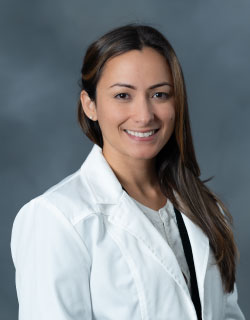Error message
Warning: unserialize(): Error at offset 0 of 62 bytes in Drupal\hg_features\Controller\APIController->export() (line 527 of modules/custom/hg_features/src/Controller/APIController.php).
Drupal\hg_features\Controller\APIController->export() (Line: 249)
Drupal\hg_features\Controller\ContentAPIController->export() (Line: 461)
Drupal\hg_features\Controller\NodeAPIController->export() (Line: 916)
Drupal\hg_features\Controller\NodeAPIController->list() (Line: 455)
Drupal\hg_mercury_card\Plugin\Block\ContentFeedBlock->__construct() (Line: 723)
Drupal\hg_mercury_card\Plugin\Block\ContentFeedBlock::create() (Line: 21)
Drupal\Core\Plugin\Factory\ContainerFactory->createInstance() (Line: 76)
Drupal\Component\Plugin\PluginManagerBase->createInstance() (Line: 62)
Drupal\Core\Plugin\DefaultSingleLazyPluginCollection->initializePlugin() (Line: 57)
Drupal\block\BlockPluginCollection->initializePlugin() (Line: 80)
Drupal\Component\Plugin\LazyPluginCollection->get() (Line: 45)
Drupal\block\BlockPluginCollection->get() (Line: 88)
Drupal\Core\Plugin\DefaultSingleLazyPluginCollection->setConfiguration() (Line: 104)
Drupal\Core\Plugin\DefaultSingleLazyPluginCollection->addInstanceId() (Line: 55)
Drupal\Core\Plugin\DefaultSingleLazyPluginCollection->__construct() (Line: 34)
Drupal\block\BlockPluginCollection->__construct() (Line: 158)
Drupal\block\Entity\Block->getPluginCollection() (Line: 147)
Drupal\block\Entity\Block->getPlugin() (Line: 118)
Drupal\block\BlockAccessControlHandler->checkAccess() (Line: 109)
Drupal\Core\Entity\EntityAccessControlHandler->access() (Line: 329)
Drupal\Core\Entity\EntityBase->access() (Line: 91)
Drupal\twig_tweak\View\RegionViewBuilder->build() (Line: 157)
Drupal\twig_tweak\TwigTweakExtension::drupalRegion() (Line: 277)
__TwigTemplate_08fe582532468c4d8939a9b0522f1c1c->doDisplay() (Line: 402)
Twig\Template->yield() (Line: 358)
Twig\Template->display() (Line: 373)
Twig\Template->render() (Line: 51)
Twig\TemplateWrapper->render() (Line: 33)
twig_render_template() (Line: 348)
Drupal\Core\Theme\ThemeManager->render() (Line: 490)
Drupal\Core\Render\Renderer->doRender() (Line: 248)
Drupal\Core\Render\Renderer->render() (Line: 238)
Drupal\Core\Render\MainContent\HtmlRenderer->Drupal\Core\Render\MainContent\{closure}() (Line: 637)
Drupal\Core\Render\Renderer->executeInRenderContext() (Line: 231)
Drupal\Core\Render\MainContent\HtmlRenderer->prepare() (Line: 128)
Drupal\Core\Render\MainContent\HtmlRenderer->renderResponse() (Line: 90)
Drupal\Core\EventSubscriber\MainContentViewSubscriber->onViewRenderArray()
call_user_func() (Line: 111)
Drupal\Component\EventDispatcher\ContainerAwareEventDispatcher->dispatch() (Line: 186)
Symfony\Component\HttpKernel\HttpKernel->handleRaw() (Line: 76)
Symfony\Component\HttpKernel\HttpKernel->handle() (Line: 53)
Drupal\Core\StackMiddleware\Session->handle() (Line: 48)
Drupal\Core\StackMiddleware\KernelPreHandle->handle() (Line: 28)
Drupal\Core\StackMiddleware\ContentLength->handle() (Line: 201)
Drupal\page_cache\StackMiddleware\PageCache->fetch() (Line: 138)
Drupal\page_cache\StackMiddleware\PageCache->lookup() (Line: 87)
Drupal\page_cache\StackMiddleware\PageCache->handle() (Line: 48)
Drupal\Core\StackMiddleware\ReverseProxyMiddleware->handle() (Line: 51)
Drupal\Core\StackMiddleware\NegotiationMiddleware->handle() (Line: 36)
Drupal\Core\StackMiddleware\AjaxPageState->handle() (Line: 51)
Drupal\Core\StackMiddleware\StackedHttpKernel->handle() (Line: 741)
Drupal\Core\DrupalKernel->handle() (Line: 19)
Warning: unserialize(): Error at offset 0 of 210 bytes in Drupal\hg_features\Controller\APIController->export() (line 527 of modules/custom/hg_features/src/Controller/APIController.php).
Drupal\hg_features\Controller\APIController->export() (Line: 249)
Drupal\hg_features\Controller\ContentAPIController->export() (Line: 461)
Drupal\hg_features\Controller\NodeAPIController->export() (Line: 916)
Drupal\hg_features\Controller\NodeAPIController->list() (Line: 455)
Drupal\hg_mercury_card\Plugin\Block\ContentFeedBlock->__construct() (Line: 723)
Drupal\hg_mercury_card\Plugin\Block\ContentFeedBlock::create() (Line: 21)
Drupal\Core\Plugin\Factory\ContainerFactory->createInstance() (Line: 76)
Drupal\Component\Plugin\PluginManagerBase->createInstance() (Line: 62)
Drupal\Core\Plugin\DefaultSingleLazyPluginCollection->initializePlugin() (Line: 57)
Drupal\block\BlockPluginCollection->initializePlugin() (Line: 80)
Drupal\Component\Plugin\LazyPluginCollection->get() (Line: 45)
Drupal\block\BlockPluginCollection->get() (Line: 88)
Drupal\Core\Plugin\DefaultSingleLazyPluginCollection->setConfiguration() (Line: 104)
Drupal\Core\Plugin\DefaultSingleLazyPluginCollection->addInstanceId() (Line: 55)
Drupal\Core\Plugin\DefaultSingleLazyPluginCollection->__construct() (Line: 34)
Drupal\block\BlockPluginCollection->__construct() (Line: 158)
Drupal\block\Entity\Block->getPluginCollection() (Line: 147)
Drupal\block\Entity\Block->getPlugin() (Line: 118)
Drupal\block\BlockAccessControlHandler->checkAccess() (Line: 109)
Drupal\Core\Entity\EntityAccessControlHandler->access() (Line: 329)
Drupal\Core\Entity\EntityBase->access() (Line: 91)
Drupal\twig_tweak\View\RegionViewBuilder->build() (Line: 157)
Drupal\twig_tweak\TwigTweakExtension::drupalRegion() (Line: 277)
__TwigTemplate_08fe582532468c4d8939a9b0522f1c1c->doDisplay() (Line: 402)
Twig\Template->yield() (Line: 358)
Twig\Template->display() (Line: 373)
Twig\Template->render() (Line: 51)
Twig\TemplateWrapper->render() (Line: 33)
twig_render_template() (Line: 348)
Drupal\Core\Theme\ThemeManager->render() (Line: 490)
Drupal\Core\Render\Renderer->doRender() (Line: 248)
Drupal\Core\Render\Renderer->render() (Line: 238)
Drupal\Core\Render\MainContent\HtmlRenderer->Drupal\Core\Render\MainContent\{closure}() (Line: 637)
Drupal\Core\Render\Renderer->executeInRenderContext() (Line: 231)
Drupal\Core\Render\MainContent\HtmlRenderer->prepare() (Line: 128)
Drupal\Core\Render\MainContent\HtmlRenderer->renderResponse() (Line: 90)
Drupal\Core\EventSubscriber\MainContentViewSubscriber->onViewRenderArray()
call_user_func() (Line: 111)
Drupal\Component\EventDispatcher\ContainerAwareEventDispatcher->dispatch() (Line: 186)
Symfony\Component\HttpKernel\HttpKernel->handleRaw() (Line: 76)
Symfony\Component\HttpKernel\HttpKernel->handle() (Line: 53)
Drupal\Core\StackMiddleware\Session->handle() (Line: 48)
Drupal\Core\StackMiddleware\KernelPreHandle->handle() (Line: 28)
Drupal\Core\StackMiddleware\ContentLength->handle() (Line: 201)
Drupal\page_cache\StackMiddleware\PageCache->fetch() (Line: 138)
Drupal\page_cache\StackMiddleware\PageCache->lookup() (Line: 87)
Drupal\page_cache\StackMiddleware\PageCache->handle() (Line: 48)
Drupal\Core\StackMiddleware\ReverseProxyMiddleware->handle() (Line: 51)
Drupal\Core\StackMiddleware\NegotiationMiddleware->handle() (Line: 36)
Drupal\Core\StackMiddleware\AjaxPageState->handle() (Line: 51)
Drupal\Core\StackMiddleware\StackedHttpKernel->handle() (Line: 741)
Drupal\Core\DrupalKernel->handle() (Line: 19)
Warning: unserialize(): Error at offset 0 of 62 bytes in Drupal\hg_features\Controller\APIController->export() (line 527 of modules/custom/hg_features/src/Controller/APIController.php).
Drupal\hg_features\Controller\APIController->export() (Line: 249)
Drupal\hg_features\Controller\ContentAPIController->export() (Line: 461)
Drupal\hg_features\Controller\NodeAPIController->export() (Line: 403)
Drupal\hg_features\Controller\APIController->export() (Line: 249)
Drupal\hg_features\Controller\ContentAPIController->export() (Line: 461)
Drupal\hg_features\Controller\NodeAPIController->export() (Line: 916)
Drupal\hg_features\Controller\NodeAPIController->list() (Line: 455)
Drupal\hg_mercury_card\Plugin\Block\ContentFeedBlock->__construct() (Line: 723)
Drupal\hg_mercury_card\Plugin\Block\ContentFeedBlock::create() (Line: 21)
Drupal\Core\Plugin\Factory\ContainerFactory->createInstance() (Line: 76)
Drupal\Component\Plugin\PluginManagerBase->createInstance() (Line: 62)
Drupal\Core\Plugin\DefaultSingleLazyPluginCollection->initializePlugin() (Line: 57)
Drupal\block\BlockPluginCollection->initializePlugin() (Line: 80)
Drupal\Component\Plugin\LazyPluginCollection->get() (Line: 45)
Drupal\block\BlockPluginCollection->get() (Line: 88)
Drupal\Core\Plugin\DefaultSingleLazyPluginCollection->setConfiguration() (Line: 104)
Drupal\Core\Plugin\DefaultSingleLazyPluginCollection->addInstanceId() (Line: 55)
Drupal\Core\Plugin\DefaultSingleLazyPluginCollection->__construct() (Line: 34)
Drupal\block\BlockPluginCollection->__construct() (Line: 158)
Drupal\block\Entity\Block->getPluginCollection() (Line: 147)
Drupal\block\Entity\Block->getPlugin() (Line: 118)
Drupal\block\BlockAccessControlHandler->checkAccess() (Line: 109)
Drupal\Core\Entity\EntityAccessControlHandler->access() (Line: 329)
Drupal\Core\Entity\EntityBase->access() (Line: 91)
Drupal\twig_tweak\View\RegionViewBuilder->build() (Line: 157)
Drupal\twig_tweak\TwigTweakExtension::drupalRegion() (Line: 277)
__TwigTemplate_08fe582532468c4d8939a9b0522f1c1c->doDisplay() (Line: 402)
Twig\Template->yield() (Line: 358)
Twig\Template->display() (Line: 373)
Twig\Template->render() (Line: 51)
Twig\TemplateWrapper->render() (Line: 33)
twig_render_template() (Line: 348)
Drupal\Core\Theme\ThemeManager->render() (Line: 490)
Drupal\Core\Render\Renderer->doRender() (Line: 248)
Drupal\Core\Render\Renderer->render() (Line: 238)
Drupal\Core\Render\MainContent\HtmlRenderer->Drupal\Core\Render\MainContent\{closure}() (Line: 637)
Drupal\Core\Render\Renderer->executeInRenderContext() (Line: 231)
Drupal\Core\Render\MainContent\HtmlRenderer->prepare() (Line: 128)
Drupal\Core\Render\MainContent\HtmlRenderer->renderResponse() (Line: 90)
Drupal\Core\EventSubscriber\MainContentViewSubscriber->onViewRenderArray()
call_user_func() (Line: 111)
Drupal\Component\EventDispatcher\ContainerAwareEventDispatcher->dispatch() (Line: 186)
Symfony\Component\HttpKernel\HttpKernel->handleRaw() (Line: 76)
Symfony\Component\HttpKernel\HttpKernel->handle() (Line: 53)
Drupal\Core\StackMiddleware\Session->handle() (Line: 48)
Drupal\Core\StackMiddleware\KernelPreHandle->handle() (Line: 28)
Drupal\Core\StackMiddleware\ContentLength->handle() (Line: 201)
Drupal\page_cache\StackMiddleware\PageCache->fetch() (Line: 138)
Drupal\page_cache\StackMiddleware\PageCache->lookup() (Line: 87)
Drupal\page_cache\StackMiddleware\PageCache->handle() (Line: 48)
Drupal\Core\StackMiddleware\ReverseProxyMiddleware->handle() (Line: 51)
Drupal\Core\StackMiddleware\NegotiationMiddleware->handle() (Line: 36)
Drupal\Core\StackMiddleware\AjaxPageState->handle() (Line: 51)
Drupal\Core\StackMiddleware\StackedHttpKernel->handle() (Line: 741)
Drupal\Core\DrupalKernel->handle() (Line: 19)
Warning: unserialize(): Error at offset 0 of 206 bytes in Drupal\hg_features\Controller\APIController->export() (line 527 of modules/custom/hg_features/src/Controller/APIController.php).
Drupal\hg_features\Controller\APIController->export() (Line: 249)
Drupal\hg_features\Controller\ContentAPIController->export() (Line: 461)
Drupal\hg_features\Controller\NodeAPIController->export() (Line: 916)
Drupal\hg_features\Controller\NodeAPIController->list() (Line: 455)
Drupal\hg_mercury_card\Plugin\Block\ContentFeedBlock->__construct() (Line: 723)
Drupal\hg_mercury_card\Plugin\Block\ContentFeedBlock::create() (Line: 21)
Drupal\Core\Plugin\Factory\ContainerFactory->createInstance() (Line: 76)
Drupal\Component\Plugin\PluginManagerBase->createInstance() (Line: 62)
Drupal\Core\Plugin\DefaultSingleLazyPluginCollection->initializePlugin() (Line: 57)
Drupal\block\BlockPluginCollection->initializePlugin() (Line: 80)
Drupal\Component\Plugin\LazyPluginCollection->get() (Line: 45)
Drupal\block\BlockPluginCollection->get() (Line: 88)
Drupal\Core\Plugin\DefaultSingleLazyPluginCollection->setConfiguration() (Line: 104)
Drupal\Core\Plugin\DefaultSingleLazyPluginCollection->addInstanceId() (Line: 55)
Drupal\Core\Plugin\DefaultSingleLazyPluginCollection->__construct() (Line: 34)
Drupal\block\BlockPluginCollection->__construct() (Line: 158)
Drupal\block\Entity\Block->getPluginCollection() (Line: 147)
Drupal\block\Entity\Block->getPlugin() (Line: 118)
Drupal\block\BlockAccessControlHandler->checkAccess() (Line: 109)
Drupal\Core\Entity\EntityAccessControlHandler->access() (Line: 329)
Drupal\Core\Entity\EntityBase->access() (Line: 91)
Drupal\twig_tweak\View\RegionViewBuilder->build() (Line: 157)
Drupal\twig_tweak\TwigTweakExtension::drupalRegion() (Line: 277)
__TwigTemplate_08fe582532468c4d8939a9b0522f1c1c->doDisplay() (Line: 402)
Twig\Template->yield() (Line: 358)
Twig\Template->display() (Line: 373)
Twig\Template->render() (Line: 51)
Twig\TemplateWrapper->render() (Line: 33)
twig_render_template() (Line: 348)
Drupal\Core\Theme\ThemeManager->render() (Line: 490)
Drupal\Core\Render\Renderer->doRender() (Line: 248)
Drupal\Core\Render\Renderer->render() (Line: 238)
Drupal\Core\Render\MainContent\HtmlRenderer->Drupal\Core\Render\MainContent\{closure}() (Line: 637)
Drupal\Core\Render\Renderer->executeInRenderContext() (Line: 231)
Drupal\Core\Render\MainContent\HtmlRenderer->prepare() (Line: 128)
Drupal\Core\Render\MainContent\HtmlRenderer->renderResponse() (Line: 90)
Drupal\Core\EventSubscriber\MainContentViewSubscriber->onViewRenderArray()
call_user_func() (Line: 111)
Drupal\Component\EventDispatcher\ContainerAwareEventDispatcher->dispatch() (Line: 186)
Symfony\Component\HttpKernel\HttpKernel->handleRaw() (Line: 76)
Symfony\Component\HttpKernel\HttpKernel->handle() (Line: 53)
Drupal\Core\StackMiddleware\Session->handle() (Line: 48)
Drupal\Core\StackMiddleware\KernelPreHandle->handle() (Line: 28)
Drupal\Core\StackMiddleware\ContentLength->handle() (Line: 201)
Drupal\page_cache\StackMiddleware\PageCache->fetch() (Line: 138)
Drupal\page_cache\StackMiddleware\PageCache->lookup() (Line: 87)
Drupal\page_cache\StackMiddleware\PageCache->handle() (Line: 48)
Drupal\Core\StackMiddleware\ReverseProxyMiddleware->handle() (Line: 51)
Drupal\Core\StackMiddleware\NegotiationMiddleware->handle() (Line: 36)
Drupal\Core\StackMiddleware\AjaxPageState->handle() (Line: 51)
Drupal\Core\StackMiddleware\StackedHttpKernel->handle() (Line: 741)
Drupal\Core\DrupalKernel->handle() (Line: 19)
Warning: unserialize(): Error at offset 0 of 62 bytes in Drupal\hg_features\Controller\APIController->export() (line 527 of modules/custom/hg_features/src/Controller/APIController.php).
Drupal\hg_features\Controller\APIController->export() (Line: 249)
Drupal\hg_features\Controller\ContentAPIController->export() (Line: 461)
Drupal\hg_features\Controller\NodeAPIController->export() (Line: 916)
Drupal\hg_features\Controller\NodeAPIController->list() (Line: 455)
Drupal\hg_mercury_card\Plugin\Block\ContentFeedBlock->__construct() (Line: 723)
Drupal\hg_mercury_card\Plugin\Block\ContentFeedBlock::create() (Line: 21)
Drupal\Core\Plugin\Factory\ContainerFactory->createInstance() (Line: 76)
Drupal\Component\Plugin\PluginManagerBase->createInstance() (Line: 62)
Drupal\Core\Plugin\DefaultSingleLazyPluginCollection->initializePlugin() (Line: 57)
Drupal\block\BlockPluginCollection->initializePlugin() (Line: 80)
Drupal\Component\Plugin\LazyPluginCollection->get() (Line: 45)
Drupal\block\BlockPluginCollection->get() (Line: 88)
Drupal\Core\Plugin\DefaultSingleLazyPluginCollection->setConfiguration() (Line: 104)
Drupal\Core\Plugin\DefaultSingleLazyPluginCollection->addInstanceId() (Line: 55)
Drupal\Core\Plugin\DefaultSingleLazyPluginCollection->__construct() (Line: 34)
Drupal\block\BlockPluginCollection->__construct() (Line: 158)
Drupal\block\Entity\Block->getPluginCollection() (Line: 147)
Drupal\block\Entity\Block->getPlugin() (Line: 96)
Drupal\block\BlockViewBuilder::buildPreRenderableBlock() (Line: 158)
Drupal\block\BlockViewBuilder::lazyBuilder()
call_user_func_array() (Line: 113)
Drupal\Core\Render\Renderer->doTrustedCallback() (Line: 886)
Drupal\Core\Render\Renderer->doCallback() (Line: 407)
Drupal\Core\Render\Renderer->doRender() (Line: 503)
Drupal\Core\Render\Renderer->doRender() (Line: 248)
Drupal\Core\Render\Renderer->render() (Line: 484)
Drupal\Core\Template\TwigExtension->escapeFilter() (Line: 277)
__TwigTemplate_08fe582532468c4d8939a9b0522f1c1c->doDisplay() (Line: 402)
Twig\Template->yield() (Line: 358)
Twig\Template->display() (Line: 373)
Twig\Template->render() (Line: 51)
Twig\TemplateWrapper->render() (Line: 33)
twig_render_template() (Line: 348)
Drupal\Core\Theme\ThemeManager->render() (Line: 490)
Drupal\Core\Render\Renderer->doRender() (Line: 248)
Drupal\Core\Render\Renderer->render() (Line: 238)
Drupal\Core\Render\MainContent\HtmlRenderer->Drupal\Core\Render\MainContent\{closure}() (Line: 637)
Drupal\Core\Render\Renderer->executeInRenderContext() (Line: 231)
Drupal\Core\Render\MainContent\HtmlRenderer->prepare() (Line: 128)
Drupal\Core\Render\MainContent\HtmlRenderer->renderResponse() (Line: 90)
Drupal\Core\EventSubscriber\MainContentViewSubscriber->onViewRenderArray()
call_user_func() (Line: 111)
Drupal\Component\EventDispatcher\ContainerAwareEventDispatcher->dispatch() (Line: 186)
Symfony\Component\HttpKernel\HttpKernel->handleRaw() (Line: 76)
Symfony\Component\HttpKernel\HttpKernel->handle() (Line: 53)
Drupal\Core\StackMiddleware\Session->handle() (Line: 48)
Drupal\Core\StackMiddleware\KernelPreHandle->handle() (Line: 28)
Drupal\Core\StackMiddleware\ContentLength->handle() (Line: 201)
Drupal\page_cache\StackMiddleware\PageCache->fetch() (Line: 138)
Drupal\page_cache\StackMiddleware\PageCache->lookup() (Line: 87)
Drupal\page_cache\StackMiddleware\PageCache->handle() (Line: 48)
Drupal\Core\StackMiddleware\ReverseProxyMiddleware->handle() (Line: 51)
Drupal\Core\StackMiddleware\NegotiationMiddleware->handle() (Line: 36)
Drupal\Core\StackMiddleware\AjaxPageState->handle() (Line: 51)
Drupal\Core\StackMiddleware\StackedHttpKernel->handle() (Line: 741)
Drupal\Core\DrupalKernel->handle() (Line: 19)
Warning: unserialize(): Error at offset 0 of 210 bytes in Drupal\hg_features\Controller\APIController->export() (line 527 of modules/custom/hg_features/src/Controller/APIController.php).
Drupal\hg_features\Controller\APIController->export() (Line: 249)
Drupal\hg_features\Controller\ContentAPIController->export() (Line: 461)
Drupal\hg_features\Controller\NodeAPIController->export() (Line: 916)
Drupal\hg_features\Controller\NodeAPIController->list() (Line: 455)
Drupal\hg_mercury_card\Plugin\Block\ContentFeedBlock->__construct() (Line: 723)
Drupal\hg_mercury_card\Plugin\Block\ContentFeedBlock::create() (Line: 21)
Drupal\Core\Plugin\Factory\ContainerFactory->createInstance() (Line: 76)
Drupal\Component\Plugin\PluginManagerBase->createInstance() (Line: 62)
Drupal\Core\Plugin\DefaultSingleLazyPluginCollection->initializePlugin() (Line: 57)
Drupal\block\BlockPluginCollection->initializePlugin() (Line: 80)
Drupal\Component\Plugin\LazyPluginCollection->get() (Line: 45)
Drupal\block\BlockPluginCollection->get() (Line: 88)
Drupal\Core\Plugin\DefaultSingleLazyPluginCollection->setConfiguration() (Line: 104)
Drupal\Core\Plugin\DefaultSingleLazyPluginCollection->addInstanceId() (Line: 55)
Drupal\Core\Plugin\DefaultSingleLazyPluginCollection->__construct() (Line: 34)
Drupal\block\BlockPluginCollection->__construct() (Line: 158)
Drupal\block\Entity\Block->getPluginCollection() (Line: 147)
Drupal\block\Entity\Block->getPlugin() (Line: 96)
Drupal\block\BlockViewBuilder::buildPreRenderableBlock() (Line: 158)
Drupal\block\BlockViewBuilder::lazyBuilder()
call_user_func_array() (Line: 113)
Drupal\Core\Render\Renderer->doTrustedCallback() (Line: 886)
Drupal\Core\Render\Renderer->doCallback() (Line: 407)
Drupal\Core\Render\Renderer->doRender() (Line: 503)
Drupal\Core\Render\Renderer->doRender() (Line: 248)
Drupal\Core\Render\Renderer->render() (Line: 484)
Drupal\Core\Template\TwigExtension->escapeFilter() (Line: 277)
__TwigTemplate_08fe582532468c4d8939a9b0522f1c1c->doDisplay() (Line: 402)
Twig\Template->yield() (Line: 358)
Twig\Template->display() (Line: 373)
Twig\Template->render() (Line: 51)
Twig\TemplateWrapper->render() (Line: 33)
twig_render_template() (Line: 348)
Drupal\Core\Theme\ThemeManager->render() (Line: 490)
Drupal\Core\Render\Renderer->doRender() (Line: 248)
Drupal\Core\Render\Renderer->render() (Line: 238)
Drupal\Core\Render\MainContent\HtmlRenderer->Drupal\Core\Render\MainContent\{closure}() (Line: 637)
Drupal\Core\Render\Renderer->executeInRenderContext() (Line: 231)
Drupal\Core\Render\MainContent\HtmlRenderer->prepare() (Line: 128)
Drupal\Core\Render\MainContent\HtmlRenderer->renderResponse() (Line: 90)
Drupal\Core\EventSubscriber\MainContentViewSubscriber->onViewRenderArray()
call_user_func() (Line: 111)
Drupal\Component\EventDispatcher\ContainerAwareEventDispatcher->dispatch() (Line: 186)
Symfony\Component\HttpKernel\HttpKernel->handleRaw() (Line: 76)
Symfony\Component\HttpKernel\HttpKernel->handle() (Line: 53)
Drupal\Core\StackMiddleware\Session->handle() (Line: 48)
Drupal\Core\StackMiddleware\KernelPreHandle->handle() (Line: 28)
Drupal\Core\StackMiddleware\ContentLength->handle() (Line: 201)
Drupal\page_cache\StackMiddleware\PageCache->fetch() (Line: 138)
Drupal\page_cache\StackMiddleware\PageCache->lookup() (Line: 87)
Drupal\page_cache\StackMiddleware\PageCache->handle() (Line: 48)
Drupal\Core\StackMiddleware\ReverseProxyMiddleware->handle() (Line: 51)
Drupal\Core\StackMiddleware\NegotiationMiddleware->handle() (Line: 36)
Drupal\Core\StackMiddleware\AjaxPageState->handle() (Line: 51)
Drupal\Core\StackMiddleware\StackedHttpKernel->handle() (Line: 741)
Drupal\Core\DrupalKernel->handle() (Line: 19)
Warning: unserialize(): Error at offset 0 of 62 bytes in Drupal\hg_features\Controller\APIController->export() (line 527 of modules/custom/hg_features/src/Controller/APIController.php).
Drupal\hg_features\Controller\APIController->export() (Line: 249)
Drupal\hg_features\Controller\ContentAPIController->export() (Line: 461)
Drupal\hg_features\Controller\NodeAPIController->export() (Line: 403)
Drupal\hg_features\Controller\APIController->export() (Line: 249)
Drupal\hg_features\Controller\ContentAPIController->export() (Line: 461)
Drupal\hg_features\Controller\NodeAPIController->export() (Line: 916)
Drupal\hg_features\Controller\NodeAPIController->list() (Line: 455)
Drupal\hg_mercury_card\Plugin\Block\ContentFeedBlock->__construct() (Line: 723)
Drupal\hg_mercury_card\Plugin\Block\ContentFeedBlock::create() (Line: 21)
Drupal\Core\Plugin\Factory\ContainerFactory->createInstance() (Line: 76)
Drupal\Component\Plugin\PluginManagerBase->createInstance() (Line: 62)
Drupal\Core\Plugin\DefaultSingleLazyPluginCollection->initializePlugin() (Line: 57)
Drupal\block\BlockPluginCollection->initializePlugin() (Line: 80)
Drupal\Component\Plugin\LazyPluginCollection->get() (Line: 45)
Drupal\block\BlockPluginCollection->get() (Line: 88)
Drupal\Core\Plugin\DefaultSingleLazyPluginCollection->setConfiguration() (Line: 104)
Drupal\Core\Plugin\DefaultSingleLazyPluginCollection->addInstanceId() (Line: 55)
Drupal\Core\Plugin\DefaultSingleLazyPluginCollection->__construct() (Line: 34)
Drupal\block\BlockPluginCollection->__construct() (Line: 158)
Drupal\block\Entity\Block->getPluginCollection() (Line: 147)
Drupal\block\Entity\Block->getPlugin() (Line: 96)
Drupal\block\BlockViewBuilder::buildPreRenderableBlock() (Line: 158)
Drupal\block\BlockViewBuilder::lazyBuilder()
call_user_func_array() (Line: 113)
Drupal\Core\Render\Renderer->doTrustedCallback() (Line: 886)
Drupal\Core\Render\Renderer->doCallback() (Line: 407)
Drupal\Core\Render\Renderer->doRender() (Line: 503)
Drupal\Core\Render\Renderer->doRender() (Line: 248)
Drupal\Core\Render\Renderer->render() (Line: 484)
Drupal\Core\Template\TwigExtension->escapeFilter() (Line: 277)
__TwigTemplate_08fe582532468c4d8939a9b0522f1c1c->doDisplay() (Line: 402)
Twig\Template->yield() (Line: 358)
Twig\Template->display() (Line: 373)
Twig\Template->render() (Line: 51)
Twig\TemplateWrapper->render() (Line: 33)
twig_render_template() (Line: 348)
Drupal\Core\Theme\ThemeManager->render() (Line: 490)
Drupal\Core\Render\Renderer->doRender() (Line: 248)
Drupal\Core\Render\Renderer->render() (Line: 238)
Drupal\Core\Render\MainContent\HtmlRenderer->Drupal\Core\Render\MainContent\{closure}() (Line: 637)
Drupal\Core\Render\Renderer->executeInRenderContext() (Line: 231)
Drupal\Core\Render\MainContent\HtmlRenderer->prepare() (Line: 128)
Drupal\Core\Render\MainContent\HtmlRenderer->renderResponse() (Line: 90)
Drupal\Core\EventSubscriber\MainContentViewSubscriber->onViewRenderArray()
call_user_func() (Line: 111)
Drupal\Component\EventDispatcher\ContainerAwareEventDispatcher->dispatch() (Line: 186)
Symfony\Component\HttpKernel\HttpKernel->handleRaw() (Line: 76)
Symfony\Component\HttpKernel\HttpKernel->handle() (Line: 53)
Drupal\Core\StackMiddleware\Session->handle() (Line: 48)
Drupal\Core\StackMiddleware\KernelPreHandle->handle() (Line: 28)
Drupal\Core\StackMiddleware\ContentLength->handle() (Line: 201)
Drupal\page_cache\StackMiddleware\PageCache->fetch() (Line: 138)
Drupal\page_cache\StackMiddleware\PageCache->lookup() (Line: 87)
Drupal\page_cache\StackMiddleware\PageCache->handle() (Line: 48)
Drupal\Core\StackMiddleware\ReverseProxyMiddleware->handle() (Line: 51)
Drupal\Core\StackMiddleware\NegotiationMiddleware->handle() (Line: 36)
Drupal\Core\StackMiddleware\AjaxPageState->handle() (Line: 51)
Drupal\Core\StackMiddleware\StackedHttpKernel->handle() (Line: 741)
Drupal\Core\DrupalKernel->handle() (Line: 19)
Warning: unserialize(): Error at offset 0 of 206 bytes in Drupal\hg_features\Controller\APIController->export() (line 527 of modules/custom/hg_features/src/Controller/APIController.php).
Drupal\hg_features\Controller\APIController->export() (Line: 249)
Drupal\hg_features\Controller\ContentAPIController->export() (Line: 461)
Drupal\hg_features\Controller\NodeAPIController->export() (Line: 916)
Drupal\hg_features\Controller\NodeAPIController->list() (Line: 455)
Drupal\hg_mercury_card\Plugin\Block\ContentFeedBlock->__construct() (Line: 723)
Drupal\hg_mercury_card\Plugin\Block\ContentFeedBlock::create() (Line: 21)
Drupal\Core\Plugin\Factory\ContainerFactory->createInstance() (Line: 76)
Drupal\Component\Plugin\PluginManagerBase->createInstance() (Line: 62)
Drupal\Core\Plugin\DefaultSingleLazyPluginCollection->initializePlugin() (Line: 57)
Drupal\block\BlockPluginCollection->initializePlugin() (Line: 80)
Drupal\Component\Plugin\LazyPluginCollection->get() (Line: 45)
Drupal\block\BlockPluginCollection->get() (Line: 88)
Drupal\Core\Plugin\DefaultSingleLazyPluginCollection->setConfiguration() (Line: 104)
Drupal\Core\Plugin\DefaultSingleLazyPluginCollection->addInstanceId() (Line: 55)
Drupal\Core\Plugin\DefaultSingleLazyPluginCollection->__construct() (Line: 34)
Drupal\block\BlockPluginCollection->__construct() (Line: 158)
Drupal\block\Entity\Block->getPluginCollection() (Line: 147)
Drupal\block\Entity\Block->getPlugin() (Line: 96)
Drupal\block\BlockViewBuilder::buildPreRenderableBlock() (Line: 158)
Drupal\block\BlockViewBuilder::lazyBuilder()
call_user_func_array() (Line: 113)
Drupal\Core\Render\Renderer->doTrustedCallback() (Line: 886)
Drupal\Core\Render\Renderer->doCallback() (Line: 407)
Drupal\Core\Render\Renderer->doRender() (Line: 503)
Drupal\Core\Render\Renderer->doRender() (Line: 248)
Drupal\Core\Render\Renderer->render() (Line: 484)
Drupal\Core\Template\TwigExtension->escapeFilter() (Line: 277)
__TwigTemplate_08fe582532468c4d8939a9b0522f1c1c->doDisplay() (Line: 402)
Twig\Template->yield() (Line: 358)
Twig\Template->display() (Line: 373)
Twig\Template->render() (Line: 51)
Twig\TemplateWrapper->render() (Line: 33)
twig_render_template() (Line: 348)
Drupal\Core\Theme\ThemeManager->render() (Line: 490)
Drupal\Core\Render\Renderer->doRender() (Line: 248)
Drupal\Core\Render\Renderer->render() (Line: 238)
Drupal\Core\Render\MainContent\HtmlRenderer->Drupal\Core\Render\MainContent\{closure}() (Line: 637)
Drupal\Core\Render\Renderer->executeInRenderContext() (Line: 231)
Drupal\Core\Render\MainContent\HtmlRenderer->prepare() (Line: 128)
Drupal\Core\Render\MainContent\HtmlRenderer->renderResponse() (Line: 90)
Drupal\Core\EventSubscriber\MainContentViewSubscriber->onViewRenderArray()
call_user_func() (Line: 111)
Drupal\Component\EventDispatcher\ContainerAwareEventDispatcher->dispatch() (Line: 186)
Symfony\Component\HttpKernel\HttpKernel->handleRaw() (Line: 76)
Symfony\Component\HttpKernel\HttpKernel->handle() (Line: 53)
Drupal\Core\StackMiddleware\Session->handle() (Line: 48)
Drupal\Core\StackMiddleware\KernelPreHandle->handle() (Line: 28)
Drupal\Core\StackMiddleware\ContentLength->handle() (Line: 201)
Drupal\page_cache\StackMiddleware\PageCache->fetch() (Line: 138)
Drupal\page_cache\StackMiddleware\PageCache->lookup() (Line: 87)
Drupal\page_cache\StackMiddleware\PageCache->handle() (Line: 48)
Drupal\Core\StackMiddleware\ReverseProxyMiddleware->handle() (Line: 51)
Drupal\Core\StackMiddleware\NegotiationMiddleware->handle() (Line: 36)
Drupal\Core\StackMiddleware\AjaxPageState->handle() (Line: 51)
Drupal\Core\StackMiddleware\StackedHttpKernel->handle() (Line: 741)
Drupal\Core\DrupalKernel->handle() (Line: 19)
Warning: unserialize(): Error at offset 0 of 62 bytes in Drupal\hg_features\Controller\APIController->export() (line 527 of modules/custom/hg_features/src/Controller/APIController.php).
Drupal\hg_features\Controller\APIController->export() (Line: 249) Drupal\hg_features\Controller\ContentAPIController->export() (Line: 461) Drupal\hg_features\Controller\NodeAPIController->export() (Line: 916) Drupal\hg_features\Controller\NodeAPIController->list() (Line: 455) Drupal\hg_mercury_card\Plugin\Block\ContentFeedBlock->__construct() (Line: 723) Drupal\hg_mercury_card\Plugin\Block\ContentFeedBlock::create() (Line: 21) Drupal\Core\Plugin\Factory\ContainerFactory->createInstance() (Line: 76) Drupal\Component\Plugin\PluginManagerBase->createInstance() (Line: 62) Drupal\Core\Plugin\DefaultSingleLazyPluginCollection->initializePlugin() (Line: 57) Drupal\block\BlockPluginCollection->initializePlugin() (Line: 80) Drupal\Component\Plugin\LazyPluginCollection->get() (Line: 45) Drupal\block\BlockPluginCollection->get() (Line: 88) Drupal\Core\Plugin\DefaultSingleLazyPluginCollection->setConfiguration() (Line: 104) Drupal\Core\Plugin\DefaultSingleLazyPluginCollection->addInstanceId() (Line: 55) Drupal\Core\Plugin\DefaultSingleLazyPluginCollection->__construct() (Line: 34) Drupal\block\BlockPluginCollection->__construct() (Line: 158) Drupal\block\Entity\Block->getPluginCollection() (Line: 147) Drupal\block\Entity\Block->getPlugin() (Line: 141) Drupal\block\Plugin\DisplayVariant\BlockPageVariant->build() (Line: 270) Drupal\Core\Render\MainContent\HtmlRenderer->prepare() (Line: 128) Drupal\Core\Render\MainContent\HtmlRenderer->renderResponse() (Line: 90) Drupal\Core\EventSubscriber\MainContentViewSubscriber->onViewRenderArray() call_user_func() (Line: 111) Drupal\Component\EventDispatcher\ContainerAwareEventDispatcher->dispatch() (Line: 186) Symfony\Component\HttpKernel\HttpKernel->handleRaw() (Line: 76) Symfony\Component\HttpKernel\HttpKernel->handle() (Line: 53) Drupal\Core\StackMiddleware\Session->handle() (Line: 48) Drupal\Core\StackMiddleware\KernelPreHandle->handle() (Line: 28) Drupal\Core\StackMiddleware\ContentLength->handle() (Line: 201) Drupal\page_cache\StackMiddleware\PageCache->fetch() (Line: 138) Drupal\page_cache\StackMiddleware\PageCache->lookup() (Line: 87) Drupal\page_cache\StackMiddleware\PageCache->handle() (Line: 48) Drupal\Core\StackMiddleware\ReverseProxyMiddleware->handle() (Line: 51) Drupal\Core\StackMiddleware\NegotiationMiddleware->handle() (Line: 36) Drupal\Core\StackMiddleware\AjaxPageState->handle() (Line: 51) Drupal\Core\StackMiddleware\StackedHttpKernel->handle() (Line: 741) Drupal\Core\DrupalKernel->handle() (Line: 19)
Warning: unserialize(): Error at offset 0 of 210 bytes in Drupal\hg_features\Controller\APIController->export() (line 527 of modules/custom/hg_features/src/Controller/APIController.php).
Drupal\hg_features\Controller\APIController->export() (Line: 249) Drupal\hg_features\Controller\ContentAPIController->export() (Line: 461) Drupal\hg_features\Controller\NodeAPIController->export() (Line: 916) Drupal\hg_features\Controller\NodeAPIController->list() (Line: 455) Drupal\hg_mercury_card\Plugin\Block\ContentFeedBlock->__construct() (Line: 723) Drupal\hg_mercury_card\Plugin\Block\ContentFeedBlock::create() (Line: 21) Drupal\Core\Plugin\Factory\ContainerFactory->createInstance() (Line: 76) Drupal\Component\Plugin\PluginManagerBase->createInstance() (Line: 62) Drupal\Core\Plugin\DefaultSingleLazyPluginCollection->initializePlugin() (Line: 57) Drupal\block\BlockPluginCollection->initializePlugin() (Line: 80) Drupal\Component\Plugin\LazyPluginCollection->get() (Line: 45) Drupal\block\BlockPluginCollection->get() (Line: 88) Drupal\Core\Plugin\DefaultSingleLazyPluginCollection->setConfiguration() (Line: 104) Drupal\Core\Plugin\DefaultSingleLazyPluginCollection->addInstanceId() (Line: 55) Drupal\Core\Plugin\DefaultSingleLazyPluginCollection->__construct() (Line: 34) Drupal\block\BlockPluginCollection->__construct() (Line: 158) Drupal\block\Entity\Block->getPluginCollection() (Line: 147) Drupal\block\Entity\Block->getPlugin() (Line: 141) Drupal\block\Plugin\DisplayVariant\BlockPageVariant->build() (Line: 270) Drupal\Core\Render\MainContent\HtmlRenderer->prepare() (Line: 128) Drupal\Core\Render\MainContent\HtmlRenderer->renderResponse() (Line: 90) Drupal\Core\EventSubscriber\MainContentViewSubscriber->onViewRenderArray() call_user_func() (Line: 111) Drupal\Component\EventDispatcher\ContainerAwareEventDispatcher->dispatch() (Line: 186) Symfony\Component\HttpKernel\HttpKernel->handleRaw() (Line: 76) Symfony\Component\HttpKernel\HttpKernel->handle() (Line: 53) Drupal\Core\StackMiddleware\Session->handle() (Line: 48) Drupal\Core\StackMiddleware\KernelPreHandle->handle() (Line: 28) Drupal\Core\StackMiddleware\ContentLength->handle() (Line: 201) Drupal\page_cache\StackMiddleware\PageCache->fetch() (Line: 138) Drupal\page_cache\StackMiddleware\PageCache->lookup() (Line: 87) Drupal\page_cache\StackMiddleware\PageCache->handle() (Line: 48) Drupal\Core\StackMiddleware\ReverseProxyMiddleware->handle() (Line: 51) Drupal\Core\StackMiddleware\NegotiationMiddleware->handle() (Line: 36) Drupal\Core\StackMiddleware\AjaxPageState->handle() (Line: 51) Drupal\Core\StackMiddleware\StackedHttpKernel->handle() (Line: 741) Drupal\Core\DrupalKernel->handle() (Line: 19)
Warning: unserialize(): Error at offset 0 of 62 bytes in Drupal\hg_features\Controller\APIController->export() (line 527 of modules/custom/hg_features/src/Controller/APIController.php).
Drupal\hg_features\Controller\APIController->export() (Line: 249) Drupal\hg_features\Controller\ContentAPIController->export() (Line: 461) Drupal\hg_features\Controller\NodeAPIController->export() (Line: 403) Drupal\hg_features\Controller\APIController->export() (Line: 249) Drupal\hg_features\Controller\ContentAPIController->export() (Line: 461) Drupal\hg_features\Controller\NodeAPIController->export() (Line: 916) Drupal\hg_features\Controller\NodeAPIController->list() (Line: 455) Drupal\hg_mercury_card\Plugin\Block\ContentFeedBlock->__construct() (Line: 723) Drupal\hg_mercury_card\Plugin\Block\ContentFeedBlock::create() (Line: 21) Drupal\Core\Plugin\Factory\ContainerFactory->createInstance() (Line: 76) Drupal\Component\Plugin\PluginManagerBase->createInstance() (Line: 62) Drupal\Core\Plugin\DefaultSingleLazyPluginCollection->initializePlugin() (Line: 57) Drupal\block\BlockPluginCollection->initializePlugin() (Line: 80) Drupal\Component\Plugin\LazyPluginCollection->get() (Line: 45) Drupal\block\BlockPluginCollection->get() (Line: 88) Drupal\Core\Plugin\DefaultSingleLazyPluginCollection->setConfiguration() (Line: 104) Drupal\Core\Plugin\DefaultSingleLazyPluginCollection->addInstanceId() (Line: 55) Drupal\Core\Plugin\DefaultSingleLazyPluginCollection->__construct() (Line: 34) Drupal\block\BlockPluginCollection->__construct() (Line: 158) Drupal\block\Entity\Block->getPluginCollection() (Line: 147) Drupal\block\Entity\Block->getPlugin() (Line: 141) Drupal\block\Plugin\DisplayVariant\BlockPageVariant->build() (Line: 270) Drupal\Core\Render\MainContent\HtmlRenderer->prepare() (Line: 128) Drupal\Core\Render\MainContent\HtmlRenderer->renderResponse() (Line: 90) Drupal\Core\EventSubscriber\MainContentViewSubscriber->onViewRenderArray() call_user_func() (Line: 111) Drupal\Component\EventDispatcher\ContainerAwareEventDispatcher->dispatch() (Line: 186) Symfony\Component\HttpKernel\HttpKernel->handleRaw() (Line: 76) Symfony\Component\HttpKernel\HttpKernel->handle() (Line: 53) Drupal\Core\StackMiddleware\Session->handle() (Line: 48) Drupal\Core\StackMiddleware\KernelPreHandle->handle() (Line: 28) Drupal\Core\StackMiddleware\ContentLength->handle() (Line: 201) Drupal\page_cache\StackMiddleware\PageCache->fetch() (Line: 138) Drupal\page_cache\StackMiddleware\PageCache->lookup() (Line: 87) Drupal\page_cache\StackMiddleware\PageCache->handle() (Line: 48) Drupal\Core\StackMiddleware\ReverseProxyMiddleware->handle() (Line: 51) Drupal\Core\StackMiddleware\NegotiationMiddleware->handle() (Line: 36) Drupal\Core\StackMiddleware\AjaxPageState->handle() (Line: 51) Drupal\Core\StackMiddleware\StackedHttpKernel->handle() (Line: 741) Drupal\Core\DrupalKernel->handle() (Line: 19)
Warning: unserialize(): Error at offset 0 of 206 bytes in Drupal\hg_features\Controller\APIController->export() (line 527 of modules/custom/hg_features/src/Controller/APIController.php).
Drupal\hg_features\Controller\APIController->export() (Line: 249) Drupal\hg_features\Controller\ContentAPIController->export() (Line: 461) Drupal\hg_features\Controller\NodeAPIController->export() (Line: 916) Drupal\hg_features\Controller\NodeAPIController->list() (Line: 455) Drupal\hg_mercury_card\Plugin\Block\ContentFeedBlock->__construct() (Line: 723) Drupal\hg_mercury_card\Plugin\Block\ContentFeedBlock::create() (Line: 21) Drupal\Core\Plugin\Factory\ContainerFactory->createInstance() (Line: 76) Drupal\Component\Plugin\PluginManagerBase->createInstance() (Line: 62) Drupal\Core\Plugin\DefaultSingleLazyPluginCollection->initializePlugin() (Line: 57) Drupal\block\BlockPluginCollection->initializePlugin() (Line: 80) Drupal\Component\Plugin\LazyPluginCollection->get() (Line: 45) Drupal\block\BlockPluginCollection->get() (Line: 88) Drupal\Core\Plugin\DefaultSingleLazyPluginCollection->setConfiguration() (Line: 104) Drupal\Core\Plugin\DefaultSingleLazyPluginCollection->addInstanceId() (Line: 55) Drupal\Core\Plugin\DefaultSingleLazyPluginCollection->__construct() (Line: 34) Drupal\block\BlockPluginCollection->__construct() (Line: 158) Drupal\block\Entity\Block->getPluginCollection() (Line: 147) Drupal\block\Entity\Block->getPlugin() (Line: 141) Drupal\block\Plugin\DisplayVariant\BlockPageVariant->build() (Line: 270) Drupal\Core\Render\MainContent\HtmlRenderer->prepare() (Line: 128) Drupal\Core\Render\MainContent\HtmlRenderer->renderResponse() (Line: 90) Drupal\Core\EventSubscriber\MainContentViewSubscriber->onViewRenderArray() call_user_func() (Line: 111) Drupal\Component\EventDispatcher\ContainerAwareEventDispatcher->dispatch() (Line: 186) Symfony\Component\HttpKernel\HttpKernel->handleRaw() (Line: 76) Symfony\Component\HttpKernel\HttpKernel->handle() (Line: 53) Drupal\Core\StackMiddleware\Session->handle() (Line: 48) Drupal\Core\StackMiddleware\KernelPreHandle->handle() (Line: 28) Drupal\Core\StackMiddleware\ContentLength->handle() (Line: 201) Drupal\page_cache\StackMiddleware\PageCache->fetch() (Line: 138) Drupal\page_cache\StackMiddleware\PageCache->lookup() (Line: 87) Drupal\page_cache\StackMiddleware\PageCache->handle() (Line: 48) Drupal\Core\StackMiddleware\ReverseProxyMiddleware->handle() (Line: 51) Drupal\Core\StackMiddleware\NegotiationMiddleware->handle() (Line: 36) Drupal\Core\StackMiddleware\AjaxPageState->handle() (Line: 51) Drupal\Core\StackMiddleware\StackedHttpKernel->handle() (Line: 741) Drupal\Core\DrupalKernel->handle() (Line: 19)
GBMC Rx: Colorectal Cancer
March 5, 2025Colorectal cancer encompasses both colon and rectal cancers, which affect different parts of the large intestine. Screening, such as colonoscopies starting at age 45 for average-risk individuals, is crucial as it allows for the detection and removal of polyps before they become cancerous. Newer screening options like Cologuard offer non-invasive methods to detect microscopic traces in stool samples, prompting further investigation if abnormalities are found. Listen for more on common symptoms, risk factors, and treatment options.





